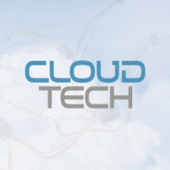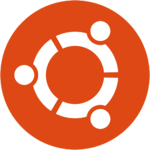Search the Community
Showing results for tags 'hybrid cloud'.
-
Cloud computing company Akamai Technologies, has extended its segmentation solution, Akamai Guardicore Segmentation, to hybrid cloud environments. Extending Akamai Guardicore Segmentation to the cloud helps reduce attack surfaces and helps contain attacks targeting cloud-native workloads. Network security professionals can seamlessly manage segmentation across their public cloud environments with the benefits of faster time to policy... Read more » The post Akamai extends segmentation solution to hybrid cloud environments appeared first on Cloud Computing News. View the full article
-
Connecting hybrid and multicloud workloads - Networking ArchitectureView the full article
-
- hybrid cloud
- multi-cloud
-
(and 2 more)
Tagged with:
-
Rumors are swirling that Broadcom wants to buy its way into the growing hybrid cloud market by acquiring VMware. The deal won’t come cheap—after news of the potential deal surfaced, VMware’s market cap soared to around $50 billion. Yes, billion with a ‘B’. As interest rates increase and investors reevaluate many of the lofty software […] The post Could Buying VMware Bring Broadcom Hybrid Cloud Bona Fides? appeared first on DevOps.com. View the full article
-
Scream if you want to go faster! When it comes to a dual hybrid-cloud-and-DevOps rollout, most organizations would admit they’re eager to get going a little bit faster. But what started so enthusiastically can turn to frustration (and a different kind of screaming starts) when they’ve accelerated into this major transformation without considering all the […] The post DevOps and Hybrid Cloud: Life in the Fast Lane? appeared first on DevOps.com. View the full article
-
Kubernetes networking is, for the most part, intra-cluster. It enables communication between pods within a single cluster: The most fundamental service Kubernetes networking provides is a flat L3 domain: Every pod can reach every other pod via IP, without NAT (Network Address Translation). The flat L3 domain is the building block upon which more sophisticated communication services, like Service Mesh ... https://blogs.cisco.com/developer/multicloudhybrid01
-
- networking
- service mesh
-
(and 3 more)
Tagged with:
-
Released today, data from more than 1,300 global respondents combines with expert analysis to reveal goals, benefits, and challenges of cloud-native technology in 2022 83% of respondents are using either hybrid or multi-cloud 38% see security as the biggest concern Nearly 50% say lack of in-house skills and limited manpower are the biggest obstacles to migrating to or using Kubernetes and containers 16 May 2022 – Canonical, the maker of Ubuntu, today released data from a new global survey revealing the goals, benefits, and challenges of cloud-native technologies. The second annual Kubernetes and Cloud Native Operations report has surveyed more than 1,300 IT professionals over the last year about their usage of Kubernetes, bare metal, VMs, containers, and serverless applications. The report also includes insights gathered by Canonical from experts at AWS, Google, the Cloud Native Computing Foundation (CNCF), Microsoft, WeaveWorks, and others. According to the survey, Kubernetes and cloud native technologies unlock innovation for organisations and allow them to achieve their goals. But the benefits of cloud native technologies vary, depending on their usage and the maturity of the organisations using them, with elasticity and agility, resource optimisation and reduced service costs identified as the top benefits, and security the most important consideration. Key Survey Findings and Expert Opinions 83% of respondents are using either hybrid or multi-cloud. In the last year alone, the percentage of respondents who did not use hybrid or multi-cloud dropped from 22.4% to 16.4%. Tim Hockin, principal software engineer at Google, discusses the reality behind that adoption: “People often build a straw man of hybrid or multi-cloud, with the idea of one giant mesh that spans the world and all the clouds, applications running wherever capacity is cheap and available. But in reality, that’s not at all what people are doing with it. What they’re actually doing is using each environment for just the things they have to use it for.” Mark Shuttleworth, CEO of Canonical, said of the increasing growth of hybrid cloud in the enterprise: “The key question is: how much of what you do every day can you do on multiple different clouds without thinking about it? For me, the sensible thing for a medium or large institution is to have a fully automated private cloud and also relationships with at least two public cloud providers. This way, businesses essentially benchmark themselves on doing any given operation on the private cloud and on the two public clouds.” 14% of respondents said that they run everything on Kubernetes, over 20% said on bare metal and VMs, and over 29% said a combination of bare metal, VMs, and Kubernetes. This distribution shows how the flexibility of Kubernetes allows organisations to run the same type of workloads everywhere. Looking back at last year’s highlight, where Kelsey Hightower stated that bare metal was a better choice for compute and resource-heavy use cases such as interactive machine learning jobs, it seems that the tune is changing. Actually, as running Kubernetes is becoming more accessible, Alexis Richardson speculates that organisations would further adopt Kubernetes on bare metal if they knew it was possible. 38% of respondents suggest that security is the most important consideration, whether operating Kubernetes, building container images, or defining an edge strategy. Keeping clusters up-to-date is a definitive best practice to solve security issues. However, according to Jose Miguel Parrella, principal architect at Microsoft, it is not as embedded within IT infrastructure strategy as one could expect. Today, it is more of a Day-30 discussion that only occurs within the small team of Kubernetes maintainers of every organisation. Combined with the fact that only 13.5% of people reported that they have “mastered” security in the cloud native space, it is clear that organisations have some room to grow when it comes to properly adopting and managing Kubernetes in production. Nearly 50% of respondents reported that lack of in-house skills and limited manpower were the biggest challenges when migrating to or using Kubernetes and containers. Ken Sipe, senior enterprise architect and co-chair of the Operator SDK, comments: “When people mention the lack of skill as a blocker, the truth is that they are often already in an environment where they are ready to do the next thing but don’t have the infrastructural or organisational support to do so. It is also a matter of buy versus build: when buying a solution and associated service, an organisation benefits from leveraging external resources and skillsets without having to build the capability in-house. When building it in house, the organisation can benefit from implementing its engineering discipline, which could be a useful differentiator.” To view the full report, click here. “The growth in Kubernetes and cloud-native technology shows no signs of stopping, so it’s vital that we understand the experience, and the concerns, of developers and users,” said David Booth, VP of Cloud Native Operations at Canonical. “This survey, and initiatives like the Canonical Operator Day at KubeCon this year, are ways for us not just to understand the needs of the enterprise ourselves, but to help increase the general understanding of this constantly evolving space.” About Canonical Canonical is behind Ubuntu, the leading OS for container, cloud, and hyperscale computing. Most public cloud workloads use Ubuntu, as do most new smart gateways, switches, self-driving cars, and advanced robots. Canonical provides enterprise security, support, and services to commercial users of Ubuntu. Established in 2004, Canonical is a privately held company. Contact Daniel Griffiths, Global Director of Communications pr@canonical.com View the full article
-
- kubernetes
- surveys
-
(and 3 more)
Tagged with:
-
IBM recently announced a definitive agreement to acquire Instana, a German-American software firm that specializes in developing APM software. With this acquisition, IBM can further advance its Hybrid Cloud and AI technology and reinforce its AI-powered automation capabilities. View the full article
-
Forum Statistics
42.4k
Total Topics42.2k
Total Posts
.png.6dd3056f38e93712a18d153891e8e0fc.png.1dbd1e5f05de09e66333e631e3342b83.png.933f4dc78ef5a5d2971934bd41ead8a1.png)


